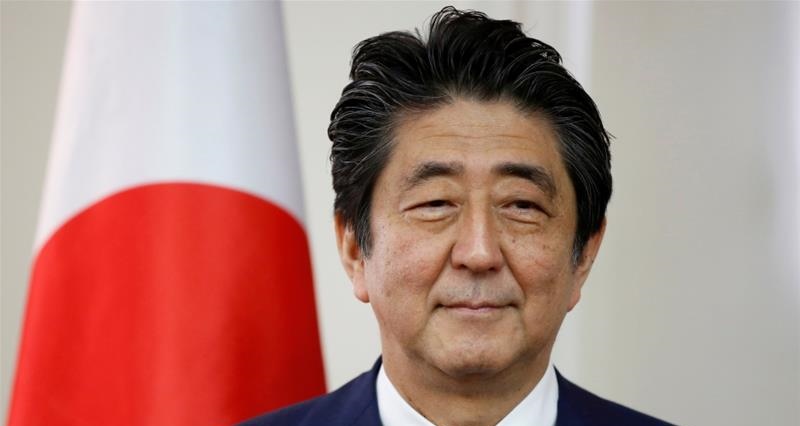Abe expresses hope for global trade
September 27, 2018 | Expert Insights

Japan will advocate for free trade as a country that has enjoyed the benefits of the post-war years according to the Japanese PM.
He also expressed his determination to meet with North Korean leader Kim Jong Un to end years of bilateral distrust and make a “new start.”
Background
Relations between Japan and North Korea are strained. There are no formal relations established between the two nations. Before Korea was divided into two nations, it was occupied by Japan in 1910. In the final days of World War II, the Soviet Union declared war on Japan and advanced towards Korea. The US fears that the Soviets would take over all of Korea, made them request it to cease its military actions. Thus, Seoul and the southern part of Korea came to be occupied by US forces. By 1948, Korea had been divided into two factions. North Korea has harboured animosity towards Japan for the role it played in the invasion of the region before World War II.
The North Korean nuclear program has been a source of concern for the US and the international community for decades. In July 2017, North Korea successfully test launched two intercontinental ballistic missiles (ICBM). In August 2017, North Korea fired several short-range missiles into the sea. It has also conducted its sixth nuclear test; an event that triggered a 6.3 magnitude earthquake.
Japan is the third largest economy in the world by nominal GDP after America and China. It has the fourth largest purchasing power parity. It is also considered the world’s second largest developed economy.
Analysis
PM Abe, who has addressed the assembly every year since 2013, started this year’s speech with the topic of trade, signalling its high priority at a time when the United States and China have engaged in tit-for-tat tariff hikes. A day ahead of his summit with U.S. President Donald Trump, Abe sent a clear message that Japan wants a win-win relationship with the United States, noting that the two countries have a long-standing leadership role in the global free trade system.
Trump has taken issue with massive U.S. trade deficits with countries such as Japan and hopes to fix what he sees as unbalanced trade by making bilateral deals. In spite of Washington’s withdrawal from the Trans-Pacific Partnership free-trade accord, Tokyo has continued to tout the benefits of multilateral free trade frameworks. Japan and the European Union signed a free trade accord in July.
Abe said he will go “all-out” in ongoing negotiations among 16 Asia-Pacific countries including China, in order to create a free trade zone under the Regional Comprehensive Economic Partnership. The speech was his first on the international stage since winning another three-year term as head of Japan’s ruling party, setting him up to become the longest-serving prime minister in Japanese history.
Abe’s priorities include amending the pacifist Constitution that was put in place after World War II and settling long-standing diplomatic challenges. In that three-year time frame, Abe pledged to do everything in his power to “clear the post-war structure from Northeast Asia.”
Amid expectations of North Korea’s complete denuclearization, Abe said he is paying “great interest” to the changes that appear to be taking place in that country. However, he reiterated Tokyo’s position that the normalization of diplomatic ties will not happen unless Pyongyang resolves the issue of the past abductions of Japanese nationals along with the nuclear and missile issues.
Japan has long sought a resolution of the abductions of Japanese nationals to the North in the 1970s and 1980s, and Abe is keen to break the impasse. Consistent with his diplomatic style, Abe has placed priority on building personal trust with leaders such as Trump and Russian President Vladimir Putin.
Japan and Russia have an unresolved territorial dispute that has prevented them from signing a post-war treaty. In a remark that apparently surprised diplomats and analysts, Putin called for signing a treaty “without preconditions” earlier in the month.
The Japanese prime minister said the territorial issue should be resolved and a peace treaty signed, which would serve as the foundation of peace and prosperity in Northeast Asia.
Assessment
Our assessment is that Japan is trying to counterbalance the US-China trade war by promoting tariff-free international trade. It is also actively trying to resolve its own disputes with Russia and the two Koreas before the US-China conflict flares up. We believe that Tokyo is looking to take advantage of South Korea’s recent diplomatic coup with North Korea and capitalise on the goodwill to resolve the North Korean threat. We feel that Japan maybe is starting to drift away from the US’s hard-line position on Pyongyang after last week’s meeting between Kim and Moon Jae-in.








Comments